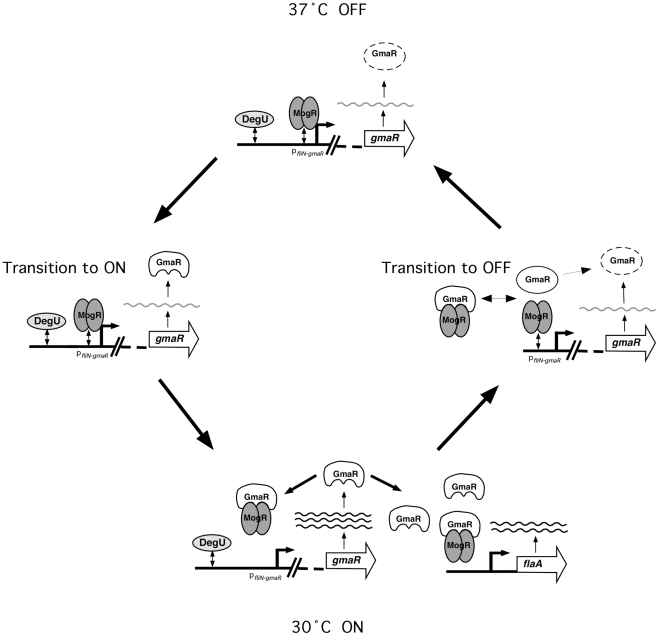Figure 7. Model for the temperature-dependent regulation of GmaR expression and flagellar motility gene transcription in Lm.
37°C OFF: At 37°C, when flagellar motility is OFF, the opposing activities of the MogR repressor and the DegU activator at pfliN-gmaR results in minimal fliN-gmaR transcripts. Any GmaR produced at 37°C is rapidly degraded and cannot interact with MogR. Transition to ON: As the temperature decreases below 37°C, newly synthesized GmaR produced from fliN-gmaR transcripts is no longer degraded and is able to interact with MogR. 30°C ON: Once GmaR is initially translated at lower temperatures, GmaR removes MogR from the fliN-gmaR promoter, increasing transcription of gmaR. Elevated levels of GmaR results in anti-repression of all flagellar motility gene promoters, allowing flagellar motility gene transcription to occur. Transition to OFF: As the temperature increases, the MogR:GmaR complex is destabilized due to a temperature-dependent conformational change in GmaR. Released GmaR is degraded, while released MogR binds flagellar promoter region DNA to reinstate repression of gmaR and all flagellar motility genes.

